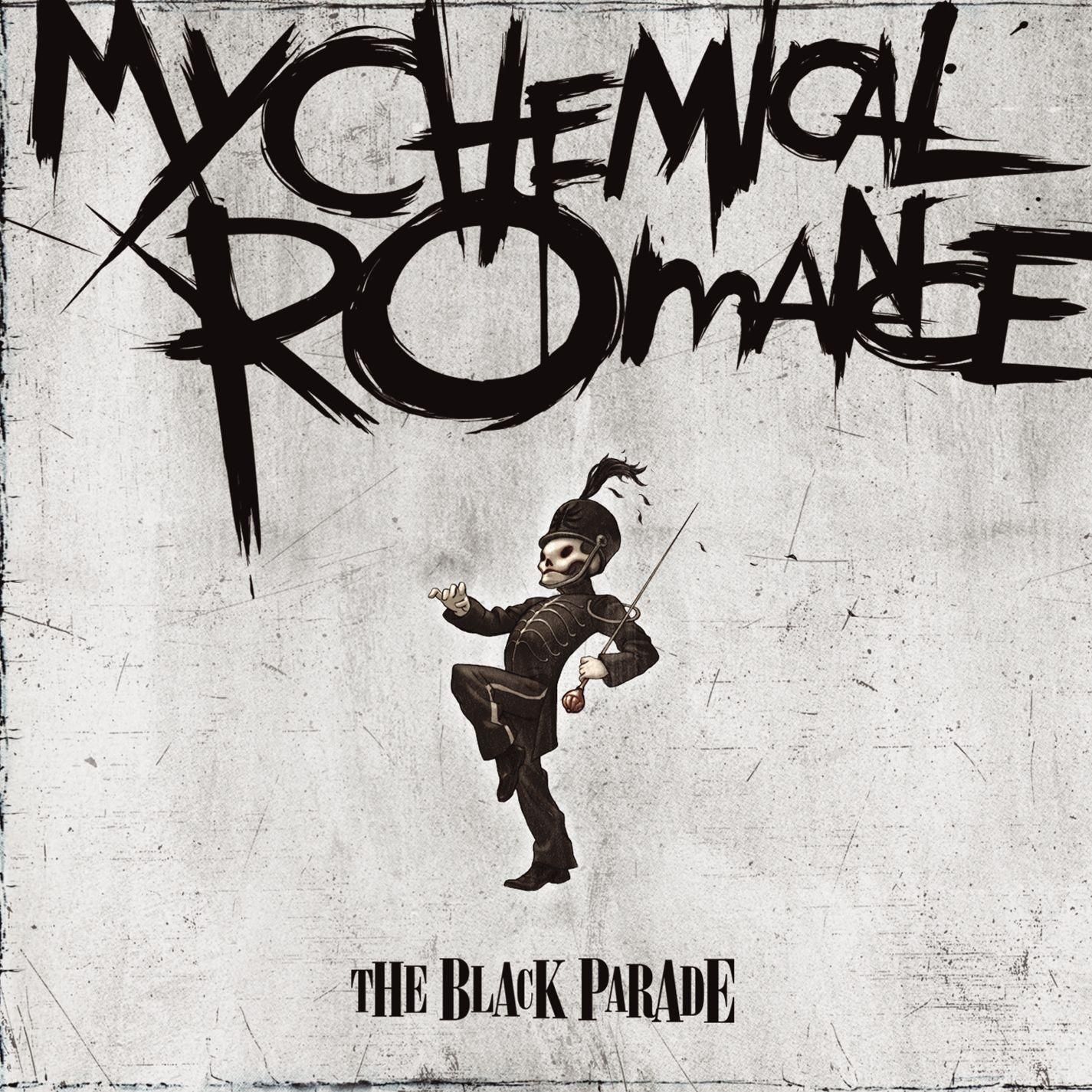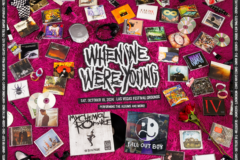Release Date: October 23, 2006
Label: Reprise
It’s both fascinating and kind of terrifying to imagine the bedroom of a teenage Gerard Way, the pasty, fiendish frontman of My Chemical Romance. The heaps of racy comic books, posters of Bowie and Queen fighting for wall space with Slayer and Danzig. The De Palma and Rocky Horror DVDs piled up next to original cast recordings of Carousel and Sweeney Todd. The nail polish. The action figures. The lack of action. All the cultural trappings of a sensitive, undersize kid aching to escape the grim New Jersey suburbs. And if the million-selling success of 2004’s Three Cheers for Sweet Revenge was a first shot heard round the underworld, The Black Parade is Way turning those bedroom walls spectacularly inside out.
With an ear for the epic, an eye for the dramatic, and an eyelash for the mascara, Way and his not-so-merry band have already rewritten the rule book for emo success. Instead of celebrating broken hearts, Way prefers theatrical open-heart surgery, stitching together the hyperactive unhappiness of his followers and, in the process, creating as much of a movement as possible in this boggy, bloggy musical moment.
And on their third album, My Chemical Romance give in completely to their inner theater geeks: It’s a savage, heartfelt, at times hilarious goth-mosh emopera featuring strings, horns, a marching band, snarling obscenities, tender reflections on mortality, and a special guest, referred to by everyone who hears this tidbit of info as “Liza Fucking Minnelli” (who croaks a chorus on “Mama”).
The Black Parade is a dark concept album about an unnamed “Patient” who seems to die on the country-ish first track (“The End.”), only to awaken in a Technicolor, rockabilly Busby Berkeley musical (the outrageously peppy and profane “Dead!”). On the album’s multipart centerpiece and first single, “Welcome to the Black Parade,” Way is still gleefully fetishizing death and vampires, but traveling the world and getting sober have given him a new sense of mission — and hope. Amid trademark screamers “This Is How I Disappear” and “House of Wolves,” positive refrains like “I am not afraid to keep on living” emerge. Way truly sees himself as the ringleader for a generation stuck with their middle fingers up and their heads down. On the glam-hammy “Teenagers,” he seems to morph into an authoritarian military recruiter who smugly drafts kids into “the murder machine,” and then bursts into the giddy chorus: “Teenagers scare the living shit out of me!”
In Way’s world, fear of difference, of sadness, of gloriously cheese-ball choruses is a fate worse than fatality. On the tremendous closer, “Famous Last Words,” he howls, “Awake and unafraid!” — recasting youthful misery as something bright and beautiful. More a raven than a butterfly, he is soaring nonetheless.





